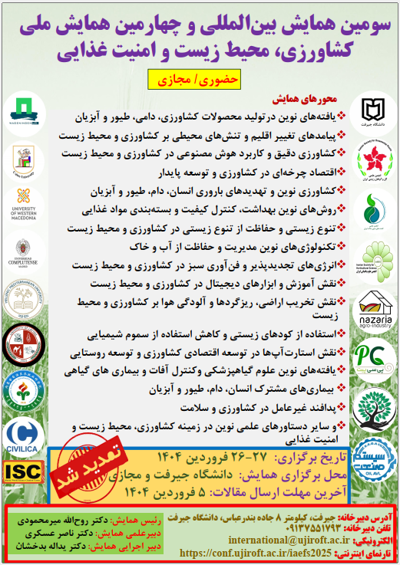0% Complete

نویسندگان :
کلمات کلیدی :
چکیده :
لیست مقالات بایگانی شده
Roya Rezaeian-Doloei - Kimia Hosseini - Mohammad Mohsenzadeh
مهلا الهی نیا
صمد عرفانی فر - محمد بخشوده
یاسر شهبازی - نسیم شاویسی
ستایش کرمعلی - محمدیار حسینی
سیده ندا موسوی - سعیده موسوی - سیده فاطمه موسوی

